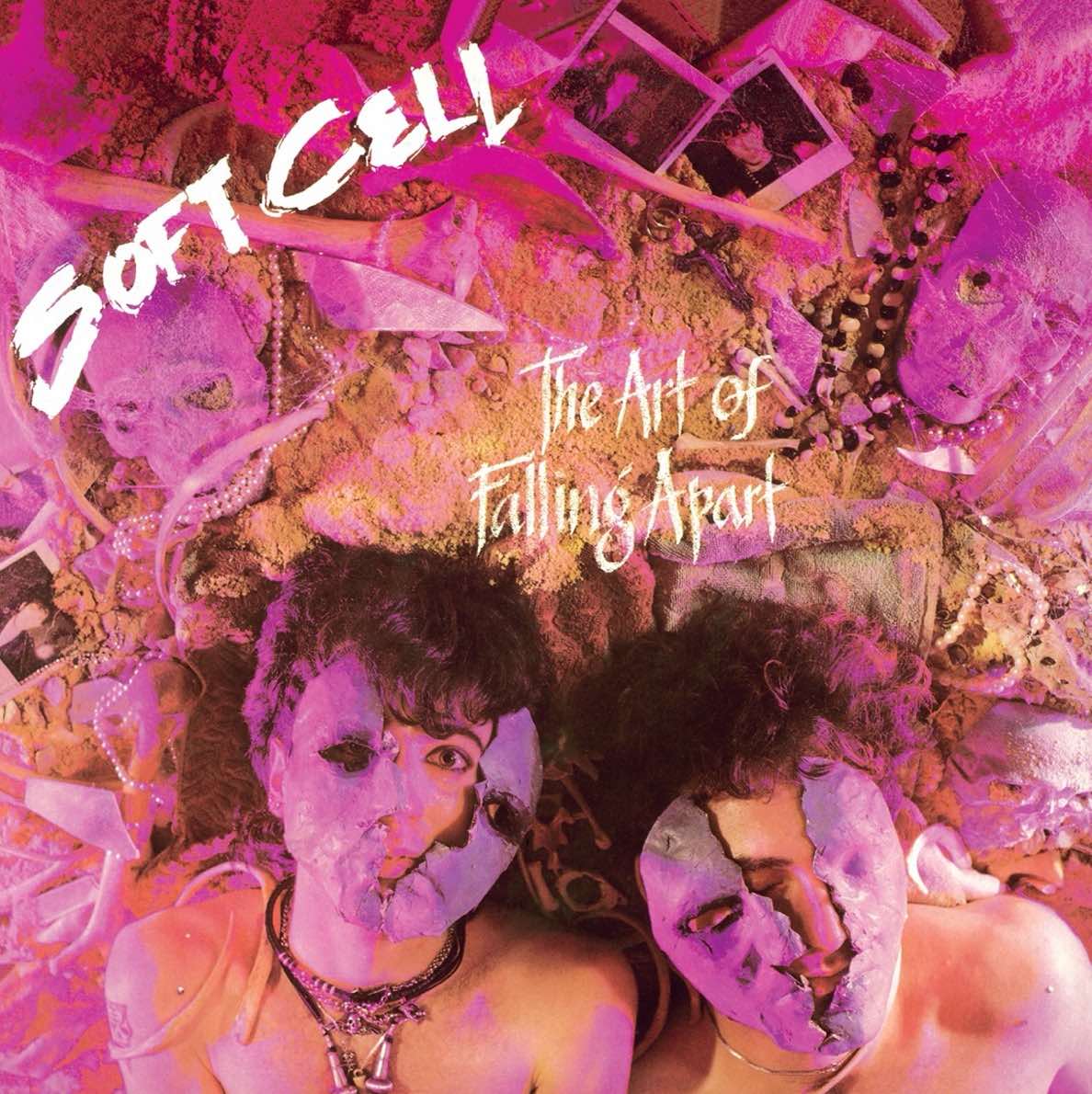Soft Cell
The Art of Falling Apart [Super Deluxe Edition]
UNIVERSAL
With the recent passing of Soft Cell’s better half, instrumentalist and composer Dave Ball, the era of experimentation that made up the duo’s earliest chart-topping electro-pop recordings has drawn to a close. Like Depeche Mode, Talk Talk, and fleeting few electronic music makers at the dawn of the UK’s new wave, vocalist Marc Almond and Ball weren’t out to make hits such as the lurid “Tainted Love” or the sweet-twee “Say Hello, Wave Goodbye.” Their initial works—their Mutant Moments EP, “The Girl with the Patent Leather Face,” the dizzying “Memorabilia”—were more noise than nice, with the intention of capitalizing on post-punk’s nagging harangue and the crunch of industrial sound.
1983’s The Art of Falling Apart, then—the follow-up to their huge, huggable Non-Stop Erotic Cabaret—was meant as Soft Cell’s revenge on becoming the pin-up darlings of the British new wave by returning to a messier sound that was way more aggressive, hastily industrial, and lyrically pernicious than one could get on Top of the Pops and hits such as “Bedsitter.” Displayed now as an expanded six-disc collection, The Art of Falling Apart lives up to its name with pummeling harsh-mellowing tracks such as “Kitchen Sink Drama” (sounding particularly nasty in its raw, demo form here), the genuinely creepy-crawling (à la Peter Lorre in M) “Baby Doll,” and the chipper but sexually free minimalism of “Numbers.” While Almond’s sex-stall croon and cabaret warble adds a quiver of catty sensuality to the proceedings, it’s Ball’s insistently in-the-red production and cluttered, clattering instrumentation that drives the duo’s aptly titled sophomore album.
If anything can influence you toward a better understanding of where Soft Cell’s start and heart truly lived, it’s in the several takes of “Ghost Rider” included within this massive package. Taking inspiration from New York City’s avant-electro-punk progenitors Martin Rev and Alan Vega, this cover of Suicide’s loneliest howler gets increasingly ruinous and blurry with each iteration, such as one taken from a television appearance on Channel 4’s Switch, a clammy 2024 version featuring Foetus’ JG Thirlwell, and a vintage take live at Hammersmith Palais in 1983, the latter presented after their fuzztone, over-the-top cover of Hendrix’s “Hey Joe/Purple Haze” and their own seedy, swerving “It’s a Mug’s Game.” You’ll never hear “Tainted Love” quite the same way after you’ve ingested six discs worth of Falling Apart.







